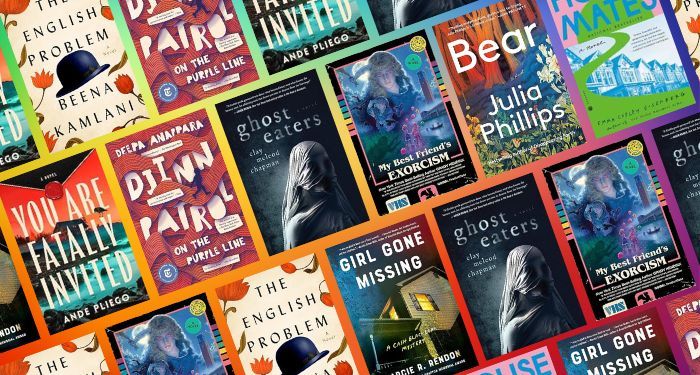Set in Florence, Italy in the lead up the 1966 floods, The Forger and the Thief by Kirsten McKenzie sees five strangers in the Tuscan city, each loosely connected to an expert forger. World War II ended two decades ago, but it still seems fresh in the minds of this international group. Their own individual stories also drive what they do in post-war Florence.
Each chapter is named for its central character: there’s Richard, The Guest; Rhonda, The Wife; Helena, The Student, Stephano, The Cleaner; Antonio Pisani, The Policeman; as well as the River Arno, The River. The repeated use of the same chapter titles makes it easier to see whose perspective is presented each time, as the characters slowly circle towards each other and are entwined with each other in this historical crime novel.
Richard is in Florence for the wedding of his ex-sweetheart Julia, who had previously been married to Richard’s brother, before his death. Now Julia is marrying an Italian, and Richard is determined to stop the marriage. Richard behaves like the stereotypical American in Florence, complaining that the cafes in Florence don’t serve ‘normal’ breakfast food, like the waffles he likes back home.
Rhonda is running from a loveless marriage, to a city she’s never seen before but wants more than anything to feel at home in. She wants to be far away from everything that ties her to her home back in England. While Richard is set on being disappointed by everything about Italy, Rhonda sees Florence through the rose-coloured glasses of the new tourist who just wants something different. Both have their expectations met.
Helena is a student in art restoration, and after multiple visits to Florence for work experience she’s starting to undertake the task which is the real reason for her trips to Italy; a search for a number of artworks which previously belonged to her father. On her arm Helena has a tattoo marking her out as different, as a survivor, but to a number of Italians that tattoo merely marks her out as a Jew, intent on stealing artworks that now belong in Italy. Helena’s attempts to locate these lost artworks instead unearth a network of forgeries and art thefts that will put her and everyone else in danger.
Stefano is a cleaner at one of the many galleries in Florence, filled with tourists with no appreciation for the artworks, and curated by businessmen whose only appreciation is for the money that the tourists bring. As the rain continues to pelt down over Florence and the River Arno swells with rainwater and Tuscan dirt, the tourists flood into the gallery, bringing with them the mud and water from outside. Against this flood of people with no appreciation for fine art, Stefano takes it upon himself to steal any artifacts he can, filling his apartment with stolen pieces of antiquity.
Antonio Pisani is a policeman with an axe to grind. Formerly a high-ranking detective, he now finds himself dealing with thefts from tourists too stupid to look after their belongings. In a city of pickpockets and cheap hotels, the opportunities to steal are everywhere, and these crimes are almost impossible to solve. Pisani must content himself with questioning dodgy hotel operators and trying to quash the resentment he feels towards his colleagues and his hatred for his coworkers.
Winding its way through all of these characters’ lives is The River – the Arno, given a playful yet increasingly sinister personality through its short chapters, spattered between ones featuring the other characters. Like Florence, the Arno is a character in this novel, however while Florence is colourfully described through the eyes of each of the other characters, The Arno really is a malevolent force as it drinks its fill of rainwater and descends down from the Valle dell’Inferno – the Valley of Hell.
The link between all of these characters is not clear until very late in the novel. Each of them has their own reason for being in Florence, and each of them has their own viewpoints they bring with them. While Richard’s brash Americanness and Rhonda’s wide-eyed naivete feel sometimes like over-simplistic caricatures, their views of Florence are pitch-perfect. Despite being called The Forger and the Thief, this book is full of petty thefts and minor forgeries from the beginning, culminating in crimes that will shake the art world. It starts off as a beautiful character driven portrait of Florence, but turns into a deep psychological examination of the lengths different people will go to to protect the things that they love.
The Forger and the Thief is a psychological thriller with a difference – a novel not confined to a single genre. Wherever you find yourself, it will make you long for the beauty of Florence.
Click here for more books about art thefts.
Squabbling Sparrows Press
Kindle/Print
£3.49
CFL Rating: 4 Stars







